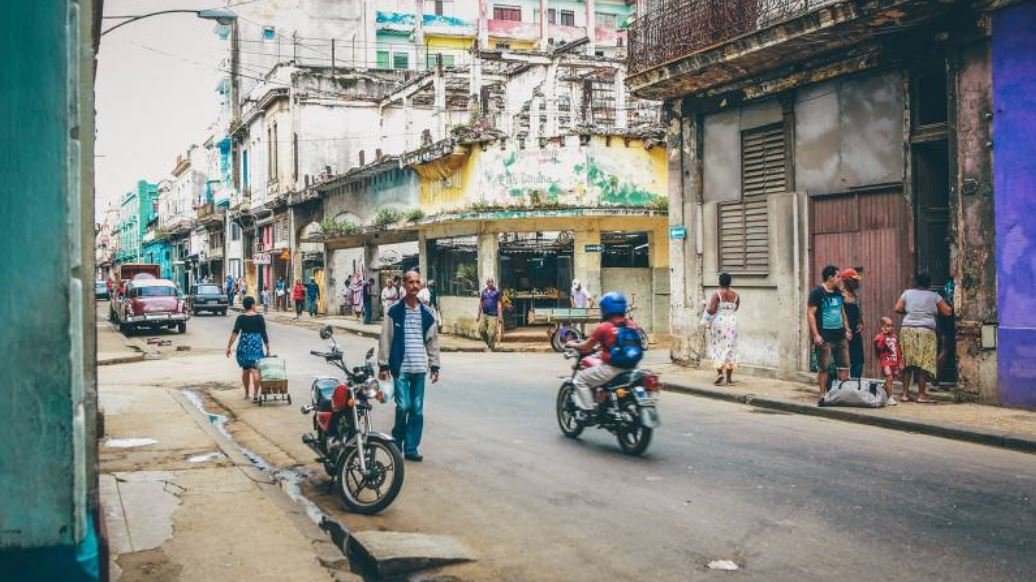Cuba: Repression of artists, journalists and writers show the power of art in society and the government's attempt to censor them
PEN International and the Cuban Writers in Exile PEN Centre are concerned by attempts in recent weeks to silence writers, intellectuals and journalists critical of the government. We urgently call on the Cuban government to end the harassment of artists and, in particular, the San Isidro Movement, for exercising their rights to artistic freedom, freedom of expression, assembly and association.
“PEN International stands in solidarity with the San Isidro Movement and calls on the Government of Cuba to respect freedom of expression and the human rights of all its citizens. PEN has always honored Cuban literature and the great voices of so many such as José Martí, José Lezama Lima, Guillermo Cabrera Infante and Lydia Cabrera, among others, who have become an essential part of universal literature”, said Jennifer Clement, President of PEN International.
From 16 to 26 November 2020, 14 activists, writers, artists and journalists gathered at the headquarters of the San Isidro Movement to protest the violent and arbitrary detention of musician Denís Solís González on 9 November 2020 (who was sentenced to 8 months in prison less than 72 hours after his arrest for “contempt” of authority). The security officers who arrested Solís did not present a valid warrant, nor information of the charges filed against him or of the rights he could exercise, and his whereabouts were unknown for three days.
During the peaceful protest in November, the group was restricted from organizing any public performance or demonstration, so they held a poetry reading at their headquarters. Later on, when their food was stolen by unknown individuals, they decided to go on a hunger strike. Later, a substance they assume was hydrochloric acid was thrown at the door and onto the roof of their headquarters, entering the water supply.
On 18 November 2020, nine of the activists at the headquarters of the San Isidro Movement began a hunger strike to demand the release of their colleague Solís. These were: Luis Manuel Otero Alcántara (visual artist), Maykel Castillo (musician), Humberto Mena (musician), Esteban Rodríguez (journalist), Óscar Casanella (scientist), Ileana Hernández (journalist), Osmani Pardo (activist), Adrián Rubio (activist) and the visual artist Yasser Castellanos. During the following days, five of them slowly abandoned the strike and two more joined it. These were: the writer Katherine Bisquet and the curator Anamely Ramos.
On 26 November 2020, the headquarters of the Movement San Isidro was raided by security agents and the artists were arrested. They were released hours later, except for Otero Alcántara, who was detained and transferred to a hospital, where he continued with his hunger strike until 29 November. The curator Anamely Ramos was arrested again during the early morning of 27 November, and was held by a police patrol for 12 hours. At this time, both Anamely and the artist Luis Manuel Otero Alcántara were declared prisoners of conscience by Amnesty International.
Maykel Castillo continued the protest until 30 November. The writer and journalist Carlos Manuel Álvarez was also arrested and released hours later. His arrest was justified by the authorities as an attempt to test him for Covid-19. However, on 1 December 2020, the writer was interrogated by state agents, as reported on social media, who tried to link him with alleged foreign support and intimidate him for his support for the movement and articles he wrote.
In an unprecedented event, after 12 days of protests, on 27 November 2020, a group of approximately 300 artists, intellectuals and writers met peacefully at the Ministry of Culture, whose authorities agreed to dialogue with the group. However, the president of Cuba, Miguel Díaz-Canel Bermúdez, described the movement as a sham on his social media.
According to a statement by the San Isidro Movement, the Vice Minister of Culture, Fernando Rojas, on behalf of the cultural authorities, committed to – among other things - end the repression and harassment of independent artists. The artist’s demands included calls for their rights to artistic freedom, freedom of expression, and to dissent by means of peaceful protest to be respected, and for the physical integrity and safety of the members of the San Isidro Movement San Isidro to be guaranteed.
According to the group of artists, eight of the people who were protesting at the movement's facilities for ten days still have police surveillance outside their homes and are unable to move freely. The Office of the Special Rapporteur for Freedom of Expression of the Inter-American Commission on Human Rights (CIDH), in its special report on the situation of freedom of expression in Cuba, pointed out that, “for decades, the Cuban State has organized the institutional machinery to silence voices outside the regime, repress independent journalists, as well as artists or citizens who seek to organize to articulate their demands; in all that time the State has maintained a monopoly on the means of social communication”.
The repressive tactics used by the Cuban authorities include threats, summonses, interrogations, arbitrary arrests, raids and confiscation of journalistic equipment or other property, and the arbitrary limitation of freedom of movement. Repression and threats have increased noticeably since Decrees 370 and 349, which violate freedom of expression and art: all artistic content must be submitted to the State for approval.
PEN International and the Cuban Writers in Exile PEN Centre condemn the existence of these decrees, request their repeal, and make an urgent call to the State of Cuba to:
End the discrediting, harassment, threats, and arrests of artists, writers and journalists critical of the government.
Declare the criminal proceedings against Denis Solis González null and void, and allow his immediate release.
Respect the dialogue and agreements between the Ministry of Culture and independent artists.
Respect the integrity and exercise of artistic freedom of the San Isidro Movement San Isidro and all the artist and writers in Cuba.

